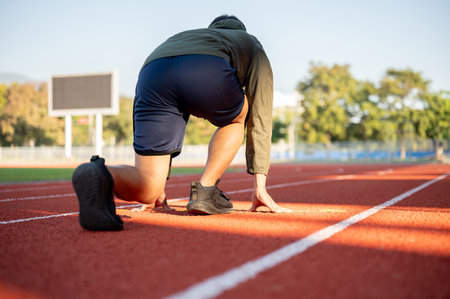1. Understanding Posture: A British Lens
Posture, in its simplest form, is the way we hold our bodies as we stand, sit, or move. From a physiological perspective, good posture ensures that our muscles and joints work efficiently, reducing strain and promoting health throughout our lives. Yet in Britain, posture is more than just an alignment of bones and muscles; it is deeply intertwined with cultural values and historical traditions. British etiquette, famously associated with straight backs and poised composure—think of the classic image of afternoon tea or the dignified stance of a Beefeater—has long influenced how individuals carry themselves in daily life. This cultural emphasis on uprightness and decorum can be traced back through centuries of social customs, shaping not only how Britons present themselves to the world but also their internal sense of balance and wellbeing. In this way, posture becomes both a reflection of physical health and a subtle manifestation of the British spirit—poised yet grounded, dignified yet relaxed.
2. The Anatomy of Balance: Mind, Body, and Movement
In the British context, where daily life often demands long periods of sitting—whether in a London office or a countryside cottage—the importance of balance within the body takes on unique relevance. Classical Chinese medicine teaches us that posture is not merely about how we hold ourselves physically; it is an ongoing dialogue between our musculoskeletal system and our emotional wellbeing. This interplay is elegantly captured in the concept of shen (spirit) and jing (essence), which together inform both our stance and our state of mind.
The Musculoskeletal System and Emotional State
Modern understanding aligns with these classical insights, recognising that poor alignment can exacerbate stress, anxiety, and fatigue. Conversely, balanced posture supports both physical health and emotional stability—a principle echoed in British traditions of mindfulness and holistic wellness. Consider the following table, which highlights the connections:
| Physical Alignment Issue | Emotional Impact | Chinese Medicine Insight |
|---|---|---|
| Slouched shoulders | Lethargy, low mood | Lung Qi stagnation impeding vitality |
| Tense neck/jaw | Anxiety, irritability | Liver Qi constraint affecting flow |
| Poor core engagement | Lack of confidence, insecurity | Spleen deficiency undermining support |
Movement as Medicine: A Harmonious Approach
The British landscape itself—rolling hills, brisk seaside walks—invites movement that nurtures harmony between mind and body. Gentle practices such as tai chi or mindful walking embody both Chinese medicine’s focus on circulation and the British appreciation for measured pace. In this sense, cultivating balance is not just a matter of standing up straight; it is about aligning intention with action, allowing energy to move freely throughout the body and spirit.
Cultivating Everyday Awareness
By integrating the wisdom of Chinese medicine with contemporary British values—such as self-awareness and resilience—we create a foundation for posture that supports all aspects of life. This union of ancient principles and modern practice sets the stage for enduring wellbeing, no matter where one stands in Britain.
![]()
3. The Impact of the British Lifestyle on Posture
The unique rhythms of British life, steeped in tradition yet shaped by modern demands, play a significant role in shaping our posture. Long commutes—whether by train, bus, or car—are a daily reality for many across the UK. Hours spent sitting in transit often mean slouched shoulders, rounded backs, and compressed chests, quietly undermining the natural harmony between body and mind that classical medicine cherishes.
Equally emblematic is the cherished tea break. While this ritual offers a pause to reconnect with oneself and colleagues, it often takes place perched on office chairs or at cramped kitchen tables. Without awareness, these moments of respite can reinforce stagnant postures and tension throughout the spine and hips.
From a holistic perspective rooted in traditional wisdom, every habitual movement and stillness leaves its imprint upon our bodies’ energy flow. When we sit for extended periods or unconsciously repeat certain postures, qi stagnation may arise, leading to discomfort or imbalance over time. The art lies in weaving gentle adjustments into our daily routine:
- During commutes: Bring attention to your seat bones and lengthen your spine upwards as if balancing a book atop your head. Subtly roll your shoulders back and allow the breath to flow fully, nourishing both body and spirit.
- At tea breaks: Rise from your chair whenever possible, stretch arms overhead, and softly twist from side to side to invigorate circulation. If seated, plant both feet flat on the floor and align your hips beneath your shoulders to create stable support.
By infusing such mindful adjustments into everyday habits, we not only support structural alignment but also foster a sense of grounded presence—a principle deeply valued in both British culture and holistic healing traditions. These small acts become quiet rituals that honour the unity of body, mind, and environment.
4. Holistic Approaches to Postural Health
True postural health is not merely a matter of sitting or standing straight; it calls for a harmonious integration of body and mind. From a British perspective, blending time-honoured traditions with contemporary wellness wisdom offers a comprehensive approach. This means looking beyond the physical framework to include breath, awareness, and subtle mental cues that shape our posture throughout daily life.
Integrating Body-Mind Techniques
Central to holistic postural care is recognising the inseparable link between how we feel and how we hold ourselves. Incorporating body-mind practices can gently guide us back into alignment, both physically and emotionally. A few effective techniques include:
| Technique | Description | British Context |
|---|---|---|
| Breathing Exercises | Encourages diaphragmatic breathing to release tension and support spinal alignment. | Inspired by Alexander Technique sessions often found in UK wellness centres. |
| Mindful Walking | Focuses on conscious movement and rhythm, fostering awareness of posture in motion. | Strolling through local parks or countryside paths as an act of mindful presence. |
| Bodyscan Meditation | Systematic attention to bodily sensations, promoting relaxation and realignment. | Practised during quiet moments at home, drawing from traditions like Mindfulness-Based Stress Reduction (MBSR) popular in Britain. |
The Role of Traditional British Mindfulness Practices
Britain boasts a rich heritage of contemplative practices, from the quietude of afternoon tea rituals to modern mindfulness movements. Embracing these native customs can create opportunities for daily postural resets. Taking a mindful pause before meetings or enjoying a meditative cup of tea allows one to check in with their body, relax the shoulders, lengthen the spine, and breathe deeply—simple yet profound acts that contribute to balanced alignment.
Cultivating Harmonious Alignment Daily
The journey towards optimal posture is ongoing and best supported by gentle reminders woven into ordinary routines. Whether practising deep breathing during your commute or engaging in mindful walking along the Thames, integrating these holistic approaches nurtures resilience and balance. In this way, good posture becomes more than an external ideal—it transforms into a living expression of inner harmony cultivated within British daily life.
5. Practical Tips for Everyday Balance
Maintaining good posture isnt just about sitting up straight—its about integrating mindful habits into the British way of life, whether youre working at a desk in London, making tea at home in Yorkshire, or strolling across the Peak District. Here are some practical tips designed for daily life in the UK:
In the Office
Mind Your Workstation
Adjust your chair so your feet rest flat on the floor and your knees are level with your hips. Keep your screen at eye level to avoid craning your neck—a simple stack of books can help if you lack an adjustable monitor stand.
Regular Movement Matters
Set a reminder (perhaps during your afternoon cuppa) to stand up and stretch every 30-60 minutes. Try gentle shoulder rolls or neck stretches while waiting for the kettle to boil.
At Home
Create a Supportive Environment
Use cushions to support your lower back when reading or watching telly. Choose chairs with proper back support rather than always lounging on the sofa.
Embrace Mindful Movement
Take inspiration from traditional Chinese medicine by incorporating slow, purposeful movements—like Tai Chi or gentle stretching—into your morning routine to awaken both body and mind.
Out and About
Walking with Awareness
When rambling through local parks or exploring the moors, walk tall with shoulders relaxed and head held high. Let each step be steady and intentional, feeling connected to the earth beneath your feet—a principle valued in both TCM and British walking culture.
Balance Load Evenly
If carrying shopping bags or a rucksack, distribute weight evenly to prevent strain on one side of your body. Opt for backpacks over single-strap bags where possible, especially if youre commuting by train or tube.
The Power of Pause
No matter where you are, remember to pause throughout the day. Take a few deep breaths, relax your shoulders, and bring awareness back to your posture. This simple practice encourages harmony between mind and body—the essence of good posture from both a British and holistic perspective.
6. Cultivating Posture for a Lifetime
Maintaining good posture is not a fleeting effort but rather a commitment woven into the fabric of daily British life. The value lies in the gentle consistency of our habits, much like the steadfast rhythm of afternoon tea or the tranquil pace of a countryside ramble. True postural wellbeing emerges when we approach it as an ongoing practice, gently integrated into each season and stage of life.
The Role of Consistency in British Life
Consistency forms the cornerstone of effective postural care. Just as we uphold time-honoured rituals—be it the morning cup of tea or the evening stroll—so too must we nurture our alignment with mindful attention. Regular moments to check in with our bodies, adjusting shoulders or lengthening the spine, can become as natural as queueing politely or greeting neighbours with a nod. In this way, posture becomes less an obligation and more a quiet act of self-respect that echoes throughout our day.
Seasonal Adjustments: Nature’s Guidance
Our British climate, with its rolling mists and shifting skies, offers gentle reminders to adapt our habits with the turning seasons. Drawing from integrative wisdom, including traditional Chinese medicine, we might focus on flexibility in spring—inviting gentle stretches as daffodils bloom—or embrace warmth and stability in winter by favouring supportive layers and restorative movements indoors. This seasonal attunement cultivates harmony between body and environment, honouring both ancient traditions and modern understanding.
Lifelong Habits for Whole-Body Harmony
Posture is ultimately shaped by the sum of our lifelong choices. Early lessons—perhaps learnt at school desks or through family customs—provide the foundation, yet it is never too late to refine our habits. Engaging in mindful movement practices such as yoga, tai chi, or even a classic British walk along the moors encourages bodily awareness and ease. By blending these practices with a spirit of self-kindness and adaptability, we foster resilience not just in posture but across all aspects of wellbeing.
Integrating Tradition with Modern Wisdom
Sustaining postural health throughout life means embracing both tradition and innovation. Let us draw from the best of British customs—valuing steadiness, moderation, and community—while remaining open to integrative approaches that view the body as an interconnected whole. In doing so, we cultivate not only uprightness but also balance and vitality for years to come.


